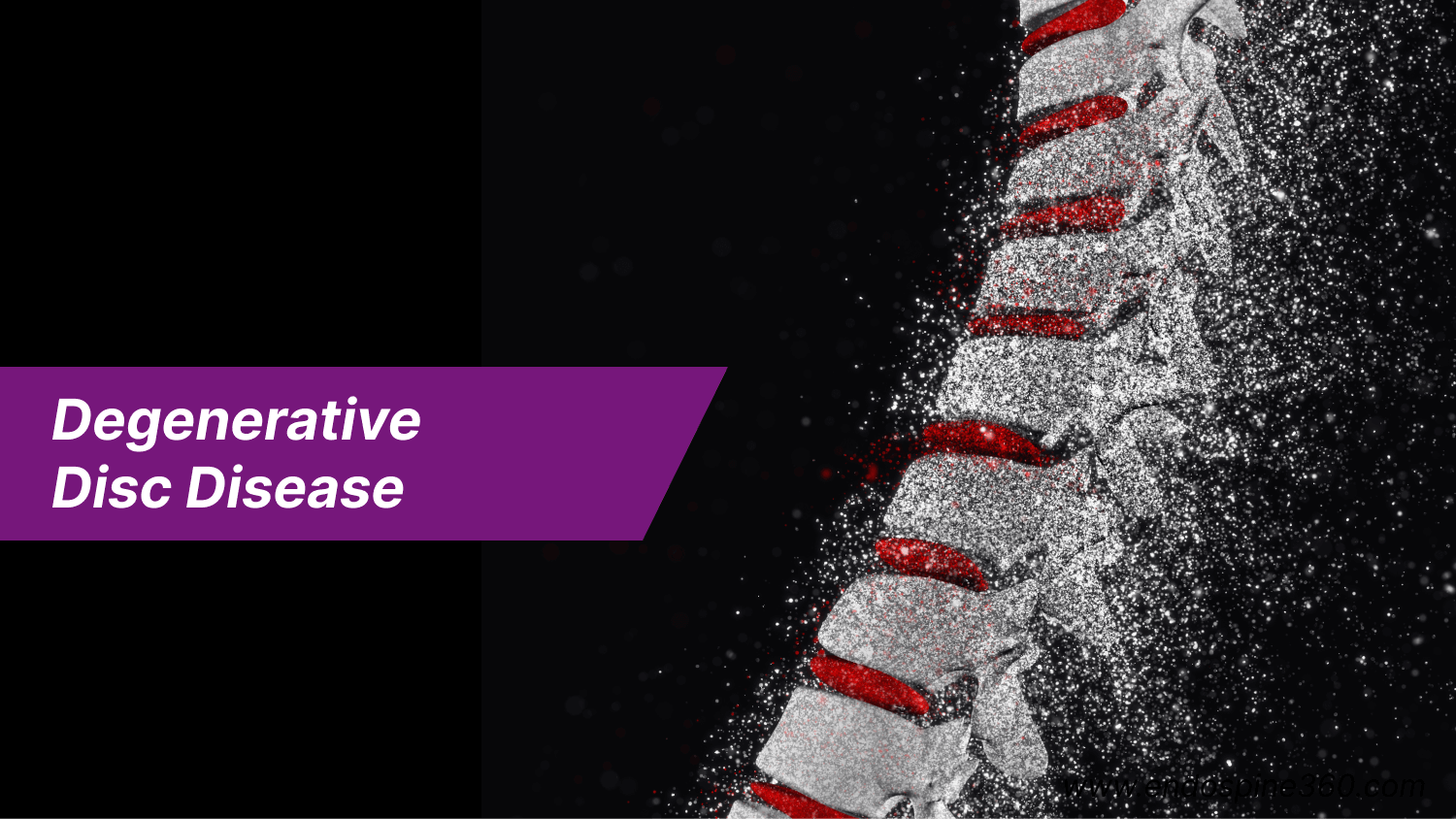Degenerative Disc Disease — Symptoms, Causes, and Treatment
- Endospine360
The word degeneration means decline or deterioration. When the word "degeneration" is associated with the discs of your spine, it becomes very concerning. However, if you happen to experience this common back condition known as disc degeneration, there are numerous steps you can take to combat its array of symptoms. Usually, disc degeneration happens slowly over time and can happen in any area of the spine, though the lower back or neck are often prime spots. Disc degeneration is a common condition that often affects the lower back due to increased pressure during daily activities. The human spine consists of vertebrae and intervertebral discs that act as cushions, absorbing the impact and stress generated by our movements.
These discs play a vital role in our spinal anatomy, enabling the vertebrae to withstand pressure, maintain stability, and facilitate bending and flexing. Without the intervertebral discs, the vertebrae would become unstable and lose their ability to absorb stress effectively. Hence, the intervertebral discs are crucial for maintaining a flexible and healthy spine. It can contribute to various other spinal issues such as bone spurs, herniated discs, and spinal stenosis. Let us try to understand the major causes and treatment options for DDD.
Causes
While degeneration of the discs is a natural part of the aging process, certain factors may accelerate the development of Degenerative Disc Disease. These include:
Age: The risk of DDD increases with age, as the discs gradually lose their hydration and become more prone to degeneration.
Genetics: Some individuals may have a genetic predisposition to developing DDD. Specific genes can influence the health and resilience of the intervertebral discs.
Lifestyle factors: Factors such as smoking, obesity, and physically demanding occupations can contribute to the development and progression of DDD.
Diagnosis
In order to determine the most suitable treatment plan for any medical condition, it is crucial for the doctor to make an accurate diagnosis. This typically involves a series of steps to gather comprehensive information. The initial step involves obtaining a detailed medical history from the patient. During this step, the doctor will ask about the symptoms, their intensity, frequency, and duration. They may also ask about the onset of pain, prior injuries, and whether family members have experienced similar issues. Some common questions include:
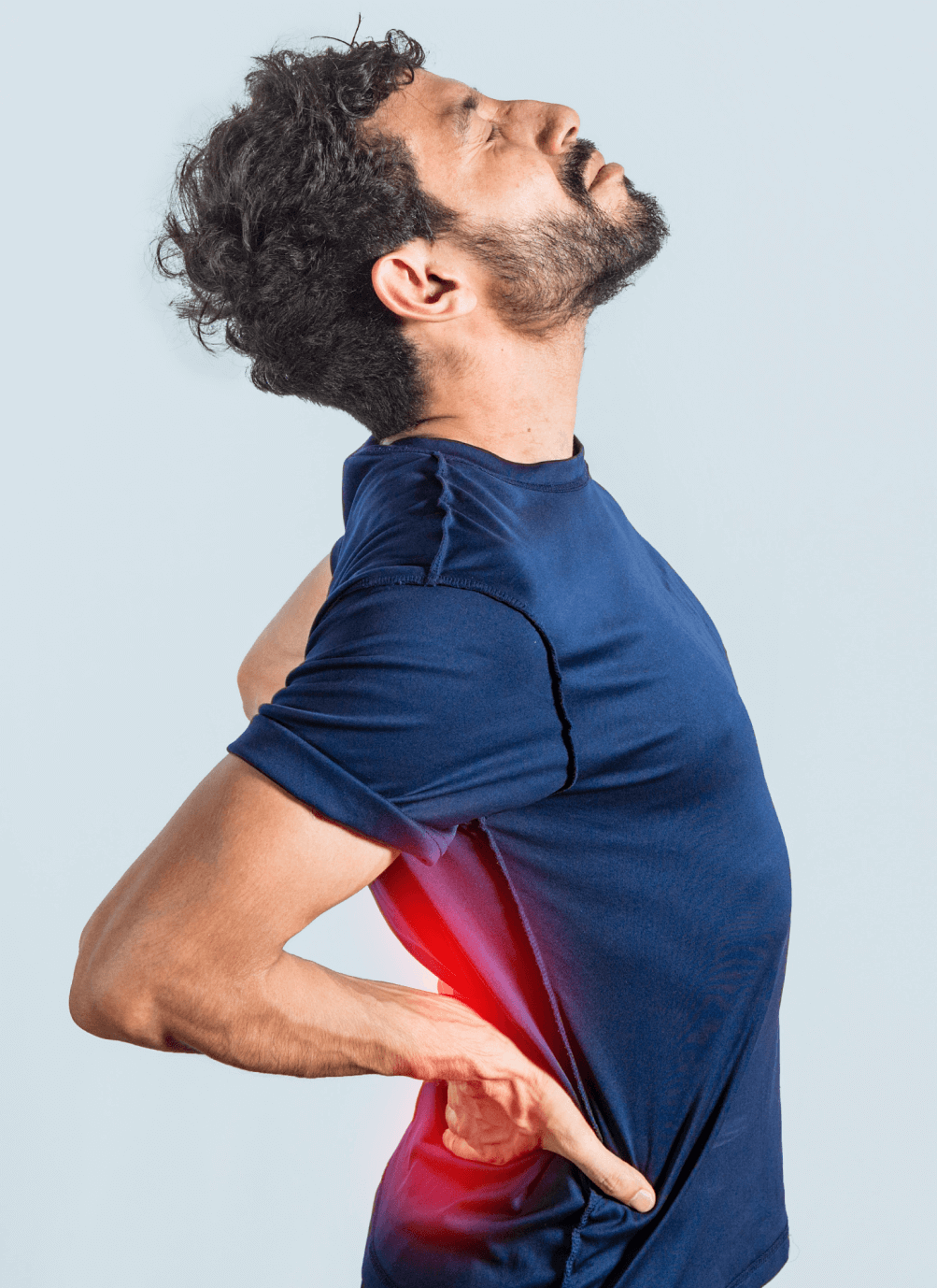
- When did the pain start?
- Which part of your spine hurts the most?
- Does the pain travels to other parts or is there any delegated pain?
- Were there any injuries/accidents?
- Is it genetic or If you have a family history DDD?
Following the medical history, a physical examination is usually conducted to rule out other conditions that may present similar symptoms. spine consultant may ask you to perform specific movements or positions to assess for any numbness or loss of sensation. You may also be encouraged to demonstrate movements that alleviate or exacerbate the pain.
In addition to the medical history and physical examination, further diagnostic tests may be ordered. These can include blood tests or imaging studies. X-rays, for instance, can help identify the presence of bone spurs. If there is suspicion of a pinched nerve, an MRI (magnetic resonance imaging) or CT scan (computed tomography) may be recommended. Additionally, electromyography or a nerve conduction study can be conducted to evaluate nerve function.
Treatments
Treatment of DDD completely depends on your symptoms and how serious your condition is. The goal is to ease pain and stop further damage. Depending on the investigation your spine consultant will suggest the best plan for you.
Treatment may include:
Medication
Over-the-counter painkillers like aspirin and ibuprofen can help reduce inflammation and improve overall comfort. In more severe cases or when over-the-counter options are insufficient, the doctor may prescribe stronger pain medications such as opioids or muscle relaxants.
Physical therapy
Physical therapy is a valuable treatment option for individuals with Degenerative Disc Disease (DDD). It aims to alleviate pain, improve function, and enhance overall quality of life. Physical therapy helps in Pain Management and Strengthening the muscles surrounding the spine.
Steroid shots
Steroid shots, also known as epidural steroid injections, are a treatment option for individuals with Degenerative Disc Disease (DDD) who experience severe pain or inflammation that has not responded to conservative measures. The corticosteroid component of the shot reduces inflammation and irritation around the affected disc(s). The immediate goal of steroid shots is to provide temporary pain relief and increase mobility.
Surgery
If conservative measures have failed to provide relief, your spine doctor may recommend surgery. Nowadays there are minimally invasive surgery options available. Minimally Invasive Discectomy, Microscopic Decompression, Minimally Invasive Fusion, and Artificial Disc Replacement are a few examples.
Search
Categories
Popular Tags
Recent Post
-
Effective solutions for spine and back pain problems by the best spine doctor in surat
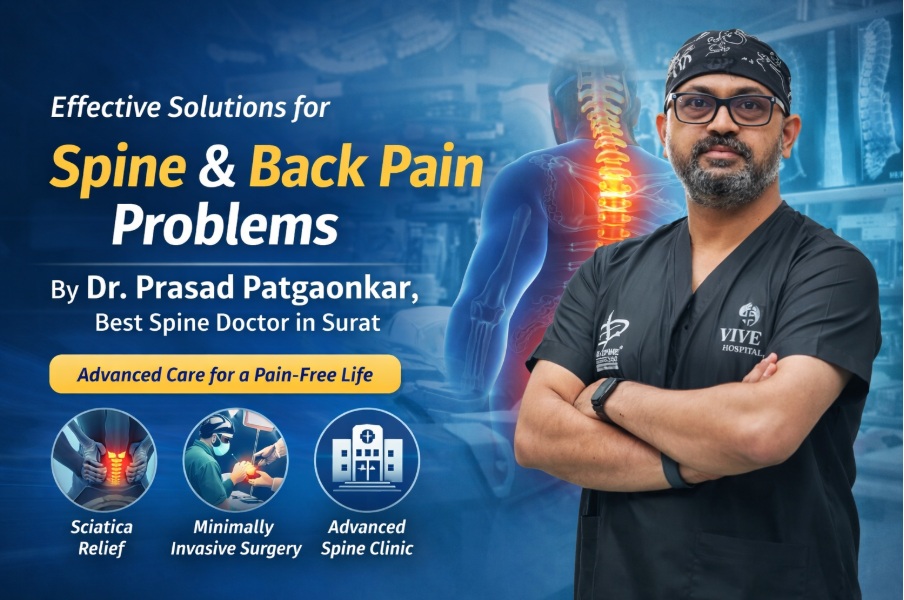
Back pain and spine-related disorders have become increasingly common ...
Read more -
Full endoscopic fellowship 2026
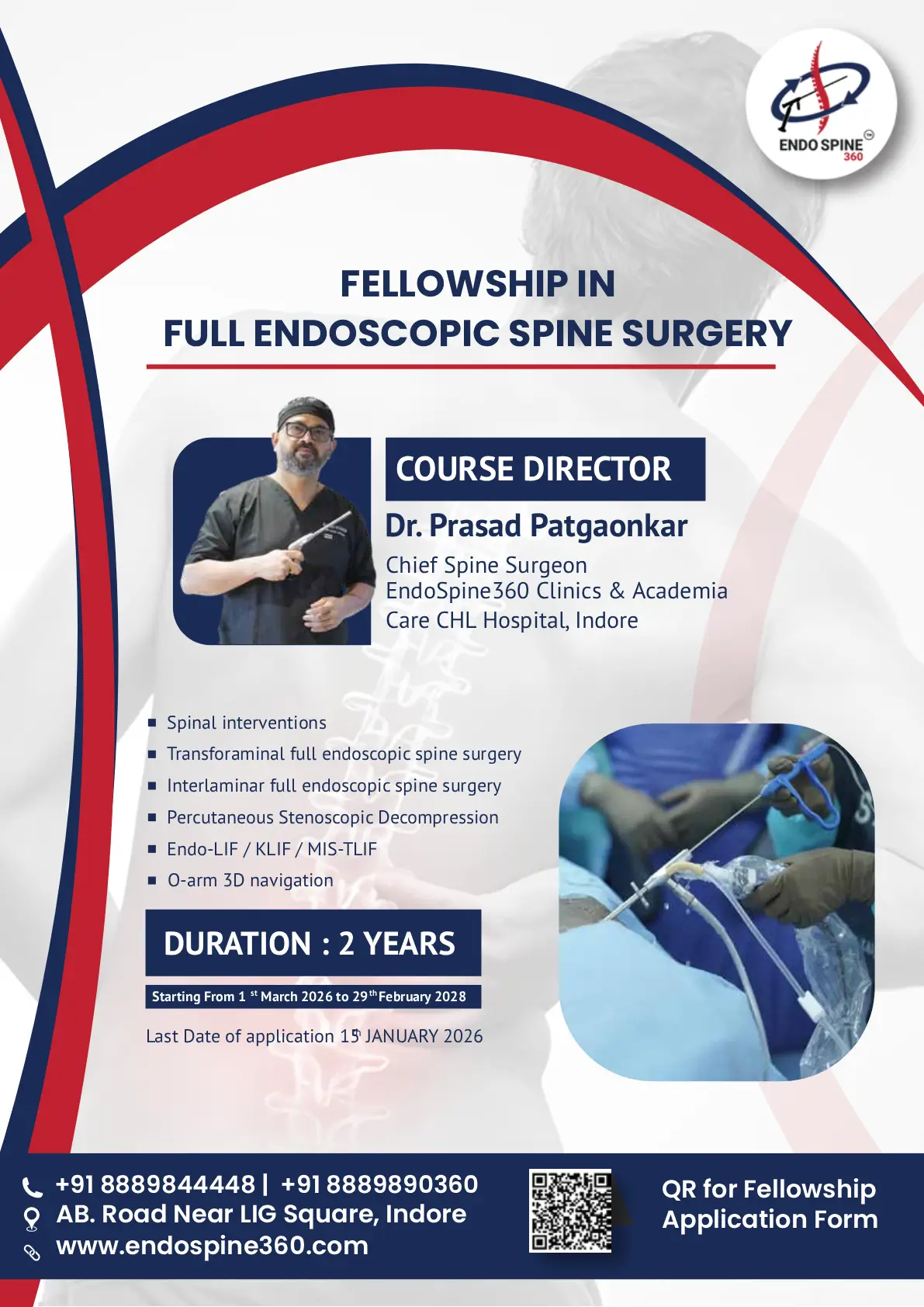
Fellowship in full endoscopic spine surgery under Dr. Prasad Patgaonka...
Read more -
From sciatica to disc problems: spinal diseases treated with endoscopic surgery in surat
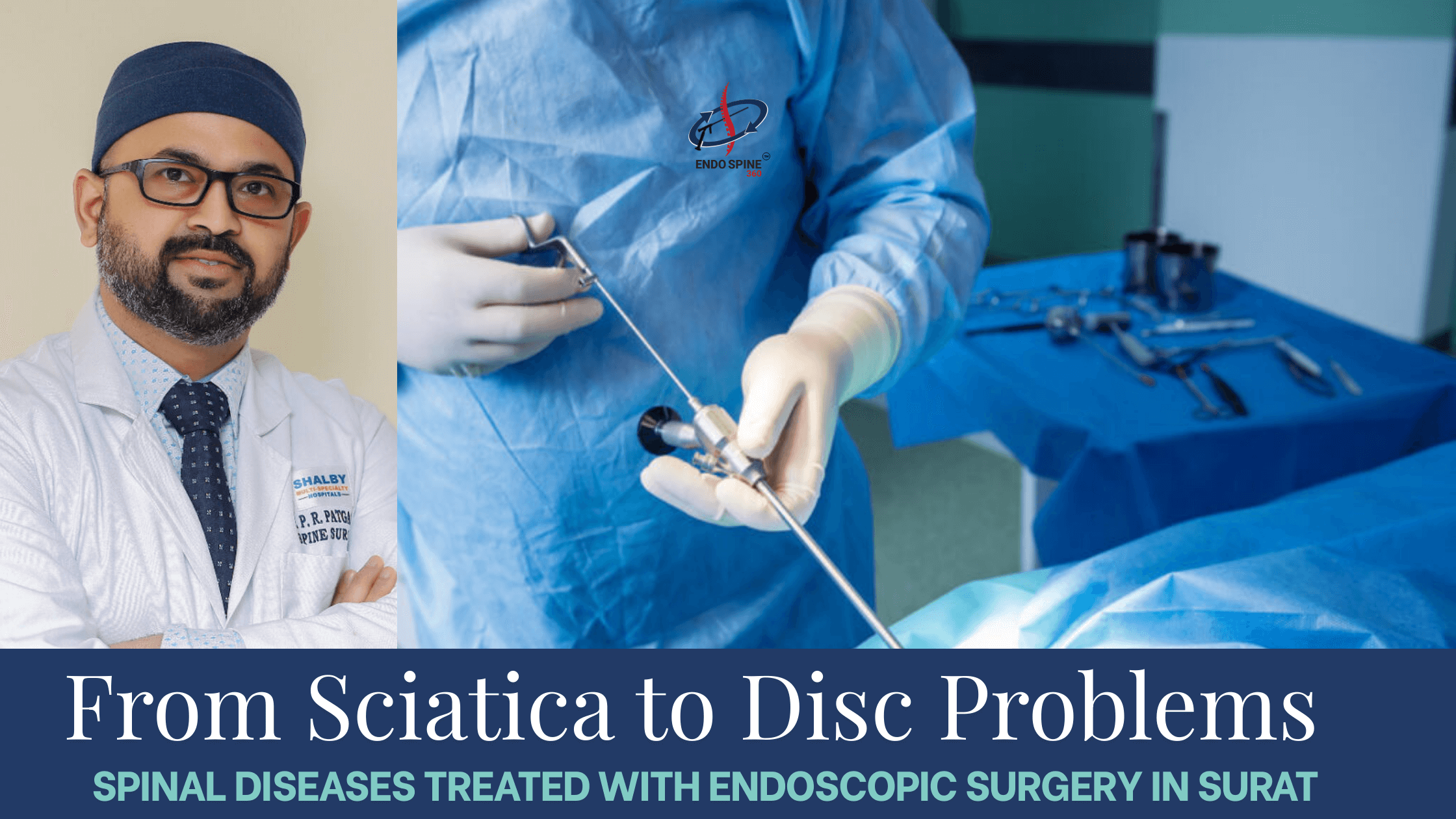
Spine pain can quietly affect every part of your life—from walking and...
Read more -
Top spine hospitals in surat offering endoscopic & minimally invasive surgery
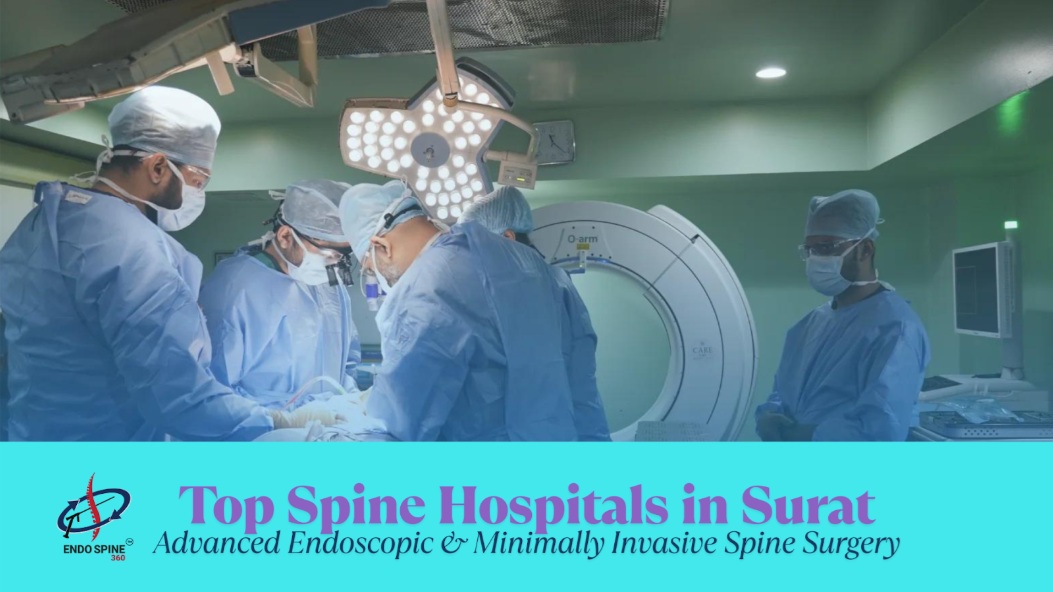
Back and spine problems can affect your daily activities, mobility, an...
Read more

